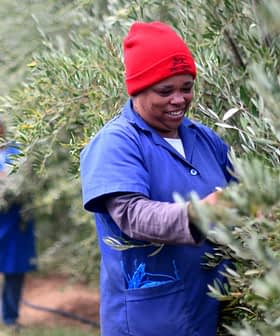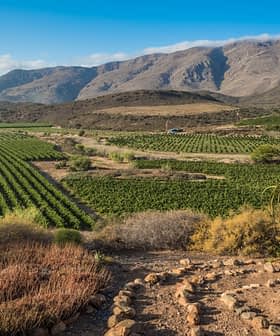Project Uses Drones to Scan the Needs of Every Tree
Tecnolivo pursues the modernization of oliviculture with the creation of a pioneering technological instrument based on precision agriculture.
Olive groves in Huelva and Southern Portugal are the focus of Tecnolivo, a research project which examines the use of precision technology for the management and supervision of olive tree cultivation with a view to maximizing research, technological development and innovation to generate business in the olive sector.
The €2.5‑million project, led by the University of Huelva through its TEP-192 group devoted to control and robotics, seeks to manage agricultural areas considering the peculiarities of individual olive trees rather than handling entire plantations homogenously.
To accomplish this, the project uses drones with sensors and multispectral imaging cameras.
The sensors are placed either on the ground surrounding the trees, or on the trees’ bark to obtain information about their nutritional situation, hydration, flowering and fruit.
The cameras take multispectral imagery that captures what is visible to the human eye and infrared images that can detect the radiation generated by each tree and the land that surrounds it.
Many considerations can be determined depending on the analysis of band spectra. These can reveal whether a plant lacks water or fertilizers, if it suffers or is at risk of suffering diseases, and the progress of flowering and fruit growth, among other considerations. The greater the number of spectra analyzed the greater the number of variables that can be identified to manage cultivation more precisely.
What makes this project unique, though, is that it allows to configure a comprehensive solution that combines the data obtained, sent out, processed, interpreted and visualized with guided actions in a pioneering technological instrument that is user-friendly for farmers. Its developers claim it allows for the thorough, ecological and optimized management of olive groves through the non-invasive monitorization of agronomic parameters that might be relevant for production.
Experiments are being held in Andalusia and Portugal, considering different scenarios for olive tree cultivation according to location and plantation density: a traditional approach with trees planted apart from each other, an intensive approach with a greater number of trees per hectare, and a super-intensive approach with the greatest density per hectare. Oleodiel Cooperative in Huelva and Portuguese company Elaia collaborate in the project.
The project’s ultimate objective is to provide farmers with an easy-to-manage tool that could be used on a regular basis, just as tractors or other indispensable equipment.
Training will be provided to explain how to use the technology and interpret individual tree data to manage olive groves according to each tree’s respective needs and with the greatest possible sustainability, favoring the optimal use of resources and environmental preservation.
Olive cultivation is the focus of the project because olives are the crop with the greatest added-value and economic potential in Andalusia, but the University of Huelva is exploring the possibility of applying the methodology to other crops.
In addition to the University of Huelva, other Spanish entities collaborating in the project include the National Institution of Aerospatiale Technique (INTA,) and Nuestra Señora de la Oliva Cooperative Society in Huelva.
Portugal’s National Institute of Aerospatiale Technique (INTA,) the National Institution of Agrarian and Veterinary Research, Ubiwhere, and Murtigão-Agricultural Society also participate in Tecnolivo.
The project is led by José Manuel Andújar, a professor at the University of Huelva. The R&D project is financed with FEDER Funds from the European Union.








